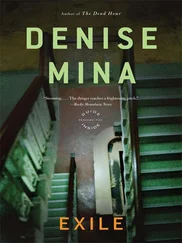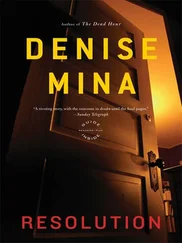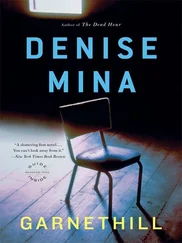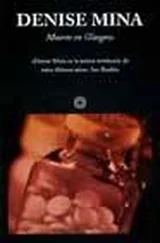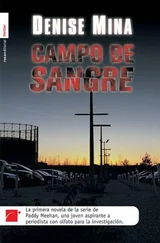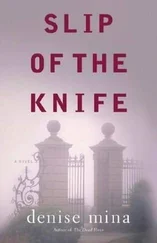Omar had been coming here since he was ten. The bank was in the west end of the city, past all the halal butchers and the sari and sweet shops, before the university on the hill, right in the middle of student pubs and cafes and second-hand book shops.
Every second week his daddy had brought him here to watch him make his deposits, to speak to Mr Kaira. Mr Kaira, whose oiled hairstyle never came or went from fashion, whose tiny collar stayed about his fat neck, whose smile was never more or less fixed; always a constant. The decor stayed the same: hessian moss-green walls, smoked glass between the counter and Mr Kaira’s office. The chairs had been replaced but only by exact replicas. Before Omar’s time there had been an open counter for service but they had replaced it with a bullet-proof window after a raid.
All their family money was in the Allied Bank of Pakistan, which was silly really because there was only one branch in Glasgow and it was on the other side of the city, but Aamir liked it. The small staff rarely changed and he could always talk to Mr Kaira about his affairs, create accounts for weddings and holidays without having to explain to a stranger. All his friends at Mosque knew that he banked here and Omar thought his father drew a sense of authenticity from it. He was a Ugandan Asian, an African Asian, not an Asian Asian like everyone else in Mosque. Aamir was always an outsider.
Mr Kaira frowned at the blue screen, jotted something on a notepad without looking at his hand and sat back. ‘Mr Anwar, as I told you on the telephone this morning, in the collected accounts of your family is deposited this much.’ He smiled and pushed the pad across to Omar – £43,193.33. ‘Your father is a prudent man.’
Not prudent enough. They would need a loan for a huge amount, much more than the house was worth, more than all the cars. A ransom wasn’t exactly a good investment. Their only hope was that Mr Kaira hadn’t heard about the kidnapping already.
‘Um, Mr Kaira.’ Omar looked at him. Mr Kaira smiled encouragingly. ‘Could I withdraw this money?’
He looked a little shocked. ‘All this money?’
‘It’s for my father. He’s away and he needs it.’
‘I see.’ Mr Kaira didn’t see, the clouds in his eyes made that clear. ‘I see, I see. Your brother would need to countersign for it. The accounts all require two signatories from the partnership.’ Everyone trusted fine upstanding Billal. ‘Would he be willing to do that?’
Omar heard him ask if he was planning to steal it. They all distrusted the next generation, those old guys, especially the youngest sons. ‘Yes, he will sign. The thing is, my father needs a lot more than that. Would you be able to advance us a loan?’
Mr Kaira snorted as if that was impossible. ‘For how much?’
Omar did the calculation, realised he wasn’t going to get a loan for £1,950,000 and balked. ‘Um. I’ll talk to Billal, see what he thinks.’
‘The withdrawals, we will need advance notice of your withdrawals-’
‘No.’ Panic rose from Omar’s guts to his stomach to his throat, blocking his airway, making it hard to breathe. ‘How much notice?’ Omar stood up, gathering the bank papers he had brought with him and shoving them back in the brown envelope.
‘A month on your sister’s wedding fund, a week for the high interest account.’
‘But I need it right away.’
‘Ah, but then you’ll lose all the interest on those accounts.’
‘That’s fine. I need it right away.’ He hurried to the office door but Mr Kaira beat him to it.
‘If your father is in trouble…’
‘No. No.’ Omar blinked hard, desperate to get out through the smoked glass door Mr Kaira was blocking with his rotund body.
‘Mr Anwar, I heard about last night. I cannot advance you the money but if I personally can be of any service…?’
Red-eyed, Omar reached around behind him and grabbed the door handle. ‘Thanks.’ He slipped past Mr Kaira and made it to the door, threw it open and stepped out into the street. He felt the cold wind brush past his face, saw a cluster of school kids eating chips across the road.
Omar looked up the hill to the students’ union building and wished, dearly, that he was back at uni, that it was any time but this time, this awful gut-wrenching time.
With a jolt, Omar realized that the bank staff could see him through the door, and Mr Kaira would be watching him, waiting to see what he did next. He turned stiffly and walked off uphill as if he knew where he was going, heading towards the university.
Afraid of meeting anyone he knew Omar took the back streets and lanes, dodging the streets around the mosque in Oakfield Avenue, looking for a place to hide. He passed the fence around Hillhead high school, saw kids inside hanging around the playground, kids dressed like poor gangster rappers, fat teenage girls wearing tight clothes and pixie boots, their conversations over-animated, posturing, attention-seeking. In the street fresh-faced first year students brushed past him, hurrying to classes.
He veered off down a road he knew was lined by houses used by the German department. No one he knew did German. The street was quiet and he dropped his head as he walked along, let his tired shoulders slump.
Aamir would know what to do. He’d have railed and shouted and then told him what to do. Whenever Omar thought about Aamir he imagined him as a small angry mouse in pyjamas. Small because he was small, angry because he was angry all the time, never spoke to any of them but to recriminate or correct, and wearing pyjamas because Aamir was rarely home unless it was time to go to bed. They didn’t need to pay school fees any more, he didn’t need to work a sixteen-hour day. He was avoiding them.
Omar saw his father looking at his spoiled, lucky children, sensed his bewilderment, his disappointment. They expected new clothes and cars and bedrooms of their own, they wanted shoes and food and holidays and iPods. Sadiqa wanted books and new clothes all the time because she was always getting fatter. They didn’t want to pray in the night, they didn’t want to walk anywhere, they didn’t want to work shifts in the smelly wee shop with Johnny Lander telling the same stories over and over about his time in the army. They were private school kids and thought it was humiliating to sit behind a counter, taking shit from alkis and shoplifters and racist fuckwits out in their slippers looking for bottles of ginger and tea bags.
Aamir had been chased out of Uganda and came to Glasgow with nothing behind him. He’d worked as a dustman for two years, taking abuse everyday from colleagues, passing school children, everyone. Finally he opened a shop where someone called him a black bastard at least once a day, where he hid from his frightening new wife and the children when they came. Omar knew these facts, he understood the hardships that had formed his father, but he had never felt the gross injustice of all that had happened to Aamir until now.
He had wandered into a back court surrounded by smelly bin sheds and overgrown gardens. He was one wall away from the university. A white cat skittered away through a hole in a fence. Purposefully, he stepped into a bin shed.
In the dark, dank smell of rotting nappies and mouldy veg, Omar covered his face and sobbed with worry for his hard-done-by daddy.
They were dawdling. Bannerman and Morrow strolled from the car park around the station house and along the road as if they had all the time in the world, as if every moment was not a timeframe during which an old man who had worked blamelessly every waking moment of the last thirty years could be killed.
If they had thought about it neither of them would have been quite sure why they lingered in one another’s company. They didn’t like each other, had fuck all in common, but they had achieved a sort of truce over the day. They were reluctant to lose that in the company of others.
Читать дальше

